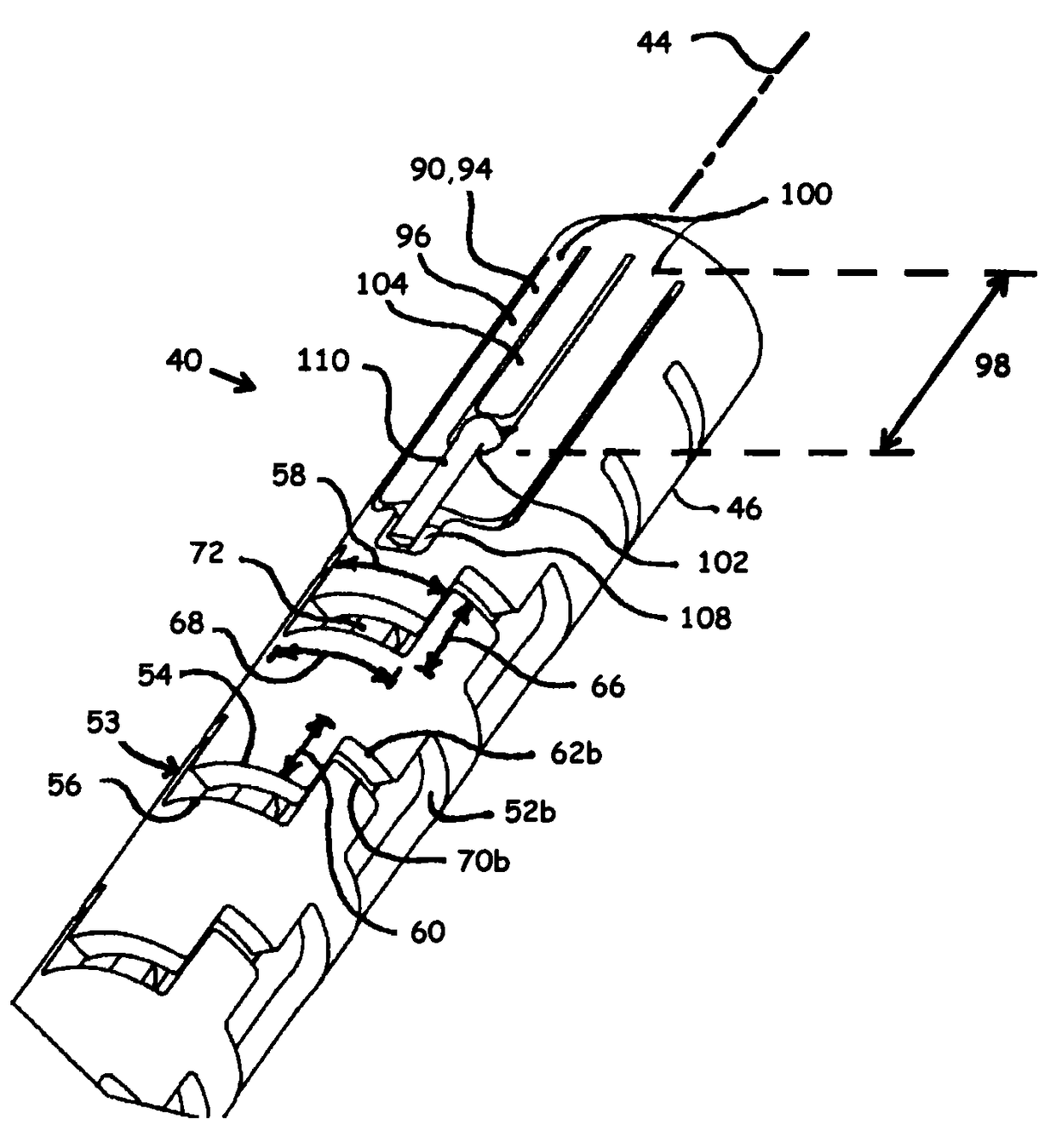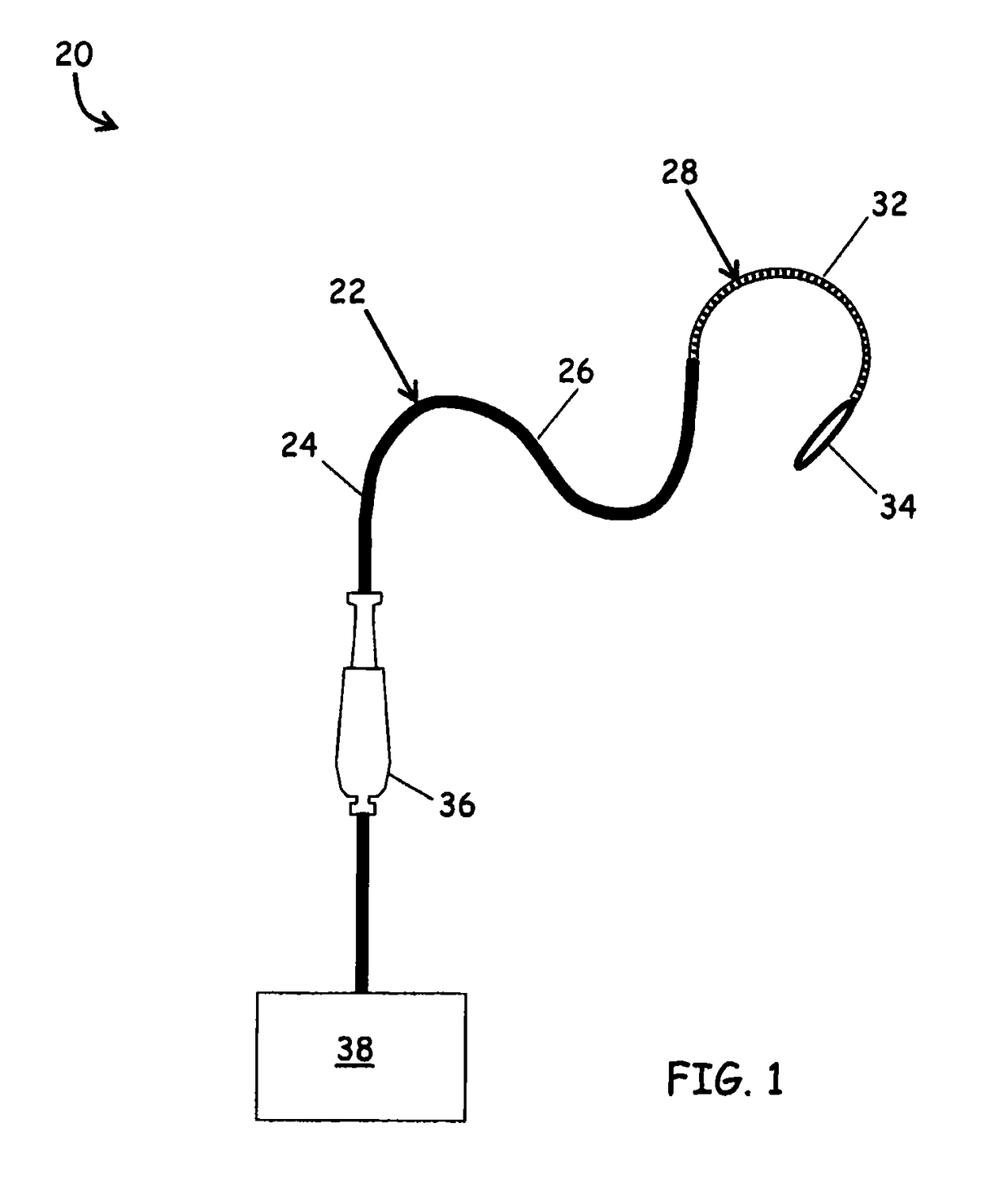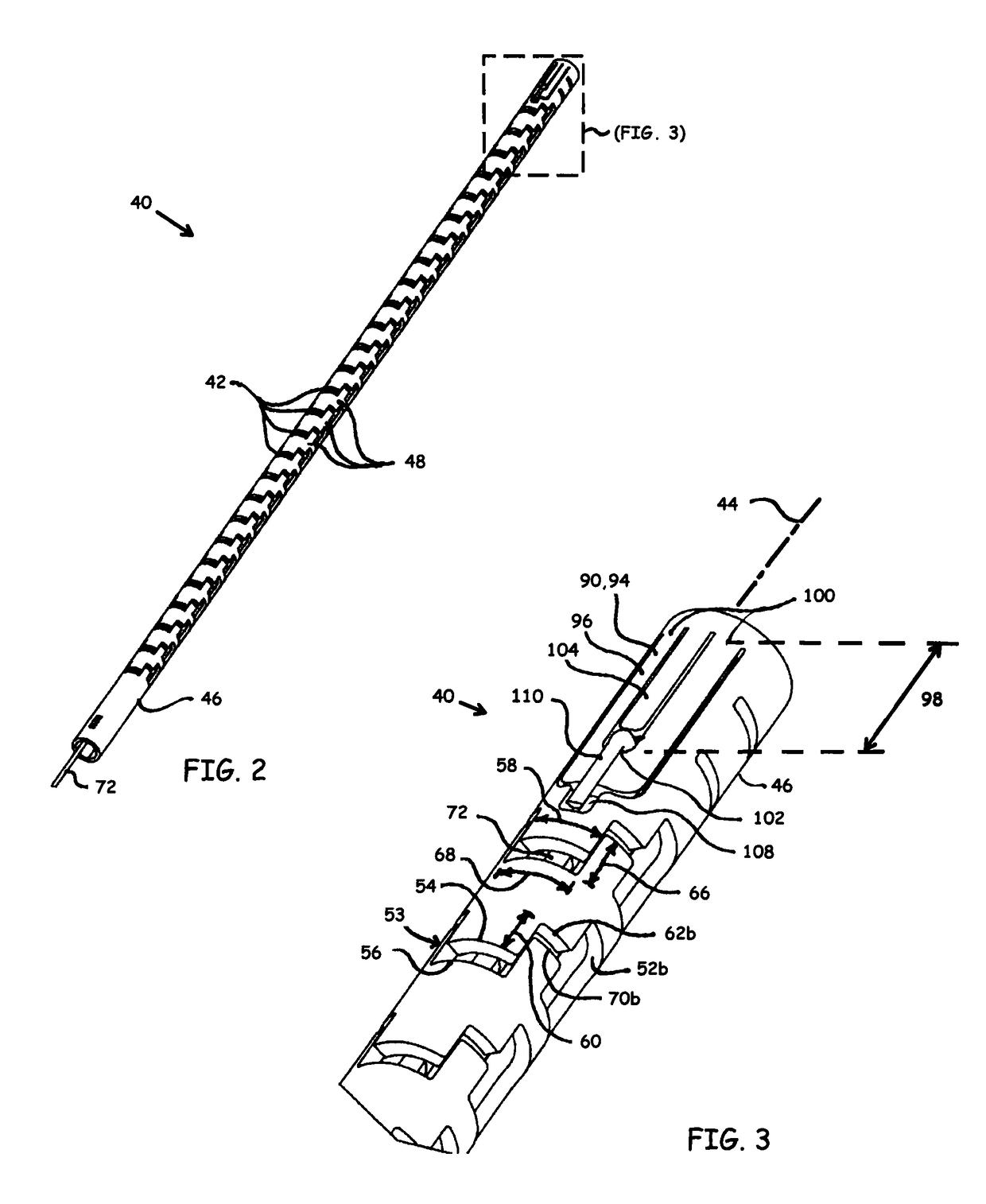Variable stiffness steering mechanism for catheters
a steering mechanism and variable stiffness technology, applied in the field of high-torque catheters, can solve the problems of not always conducive to the performance requirements of the necessary catheter, loss of light locally, and reduced sensitivity to detected strain, so as to achieve tight tolerance, control the curvature of the steering spine, and avoid sacrificing torsional strength
- Summary
- Abstract
- Description
- Claims
- Application Information
AI Technical Summary
Benefits of technology
Problems solved by technology
Method used
Image
Examples
Embodiment Construction
[0055]Referring to FIG. 1, a catheter system 20 is depicted in an embodiment of the invention. The catheter system 20 comprises an elongate catheter assembly 22 having a proximal portion 24, a middle portion 26 and a distal portion 28. The distal portion 28 includes a steering section 32 and an end effector 34. The catheter assembly 22 can include elongate internal components that extend through the proximal, middle and distal portions 22, 24 and 26, such as fiber optics, power leads, instrumentation leads, a pull wire and an irrigation lumen. In one embodiment, the proximal portion is operatively coupled with a handle 36. The handle 36 may be operatively coupled with various appurtenances 38 to augment the operation of the catheter system 20. Non-limiting examples of appurtenances 38 include power sources and / or irrigation systems for sourcing the end effector 34, electromagnetic sources for sourcing fiber optic systems within the catheter system 20, data acquisition devices for mo...
PUM
| Property | Measurement | Unit |
|---|---|---|
| diameters | aaaaa | aaaaa |
| diameters | aaaaa | aaaaa |
| divergence angle | aaaaa | aaaaa |
Abstract
Description
Claims
Application Information
 Login to View More
Login to View More - R&D
- Intellectual Property
- Life Sciences
- Materials
- Tech Scout
- Unparalleled Data Quality
- Higher Quality Content
- 60% Fewer Hallucinations
Browse by: Latest US Patents, China's latest patents, Technical Efficacy Thesaurus, Application Domain, Technology Topic, Popular Technical Reports.
© 2025 PatSnap. All rights reserved.Legal|Privacy policy|Modern Slavery Act Transparency Statement|Sitemap|About US| Contact US: help@patsnap.com



